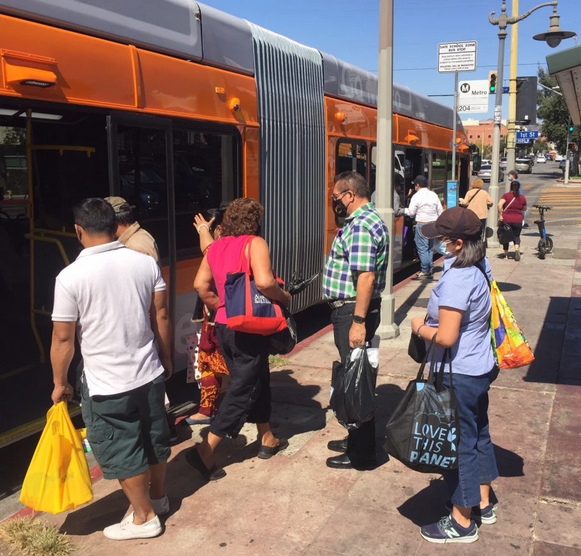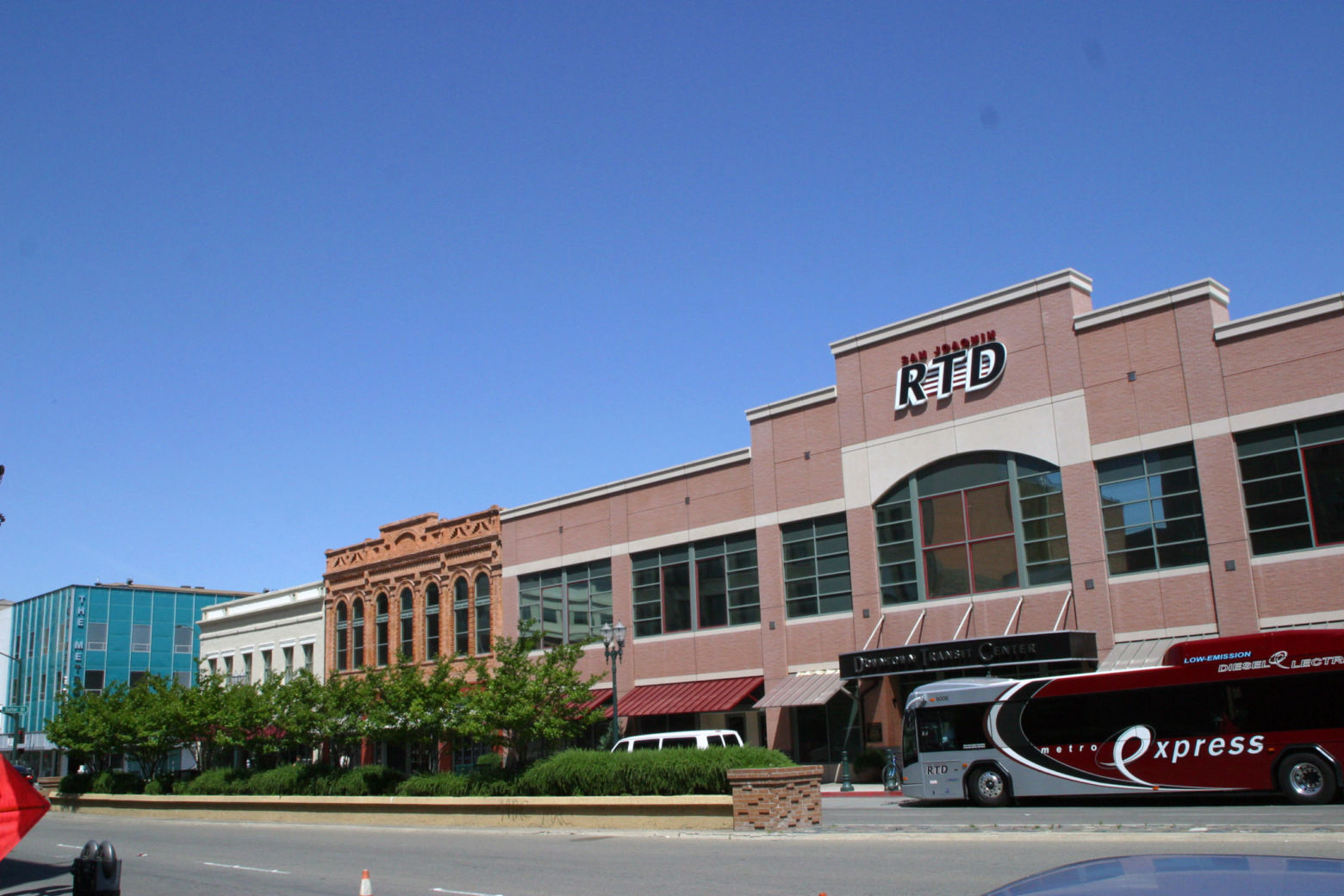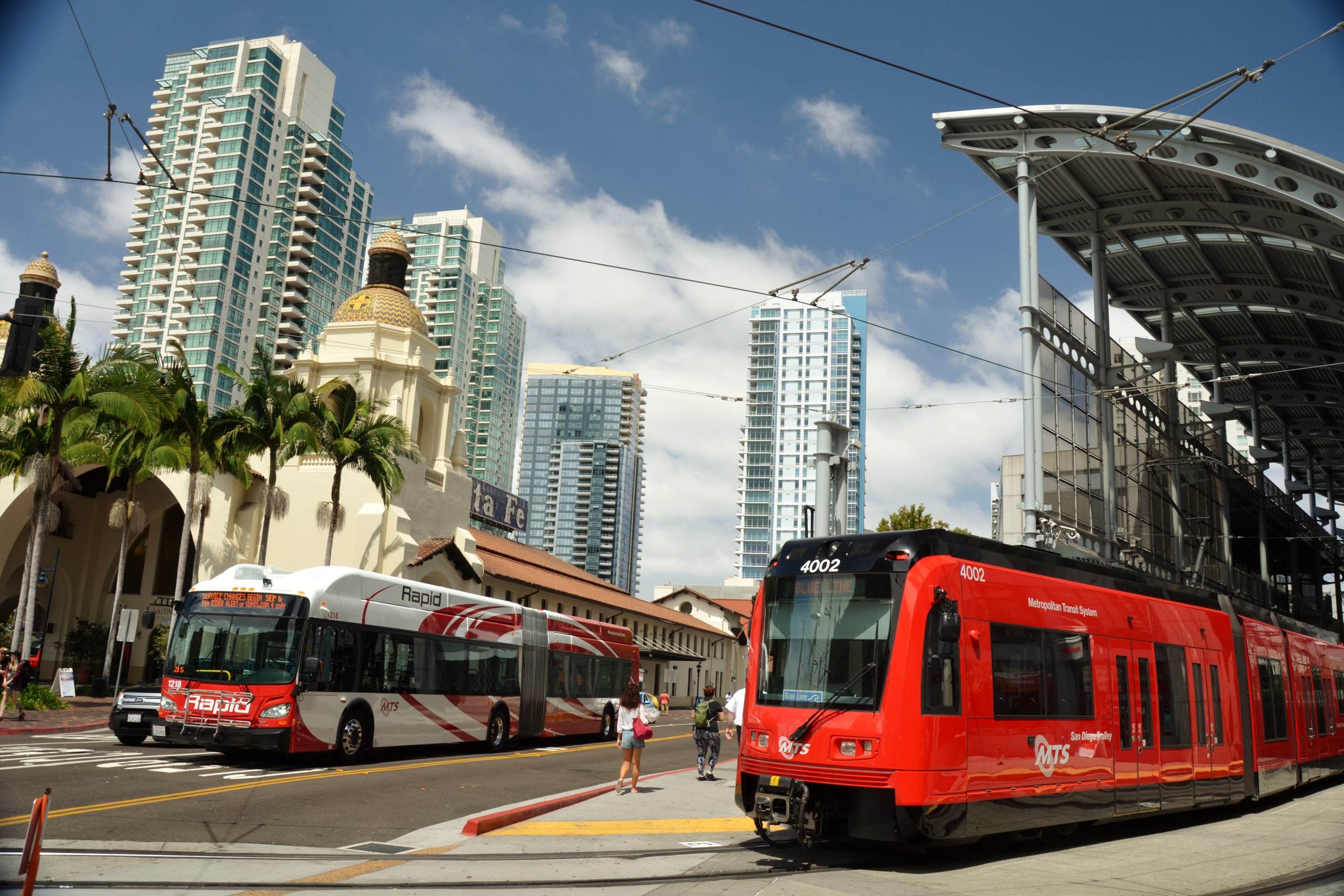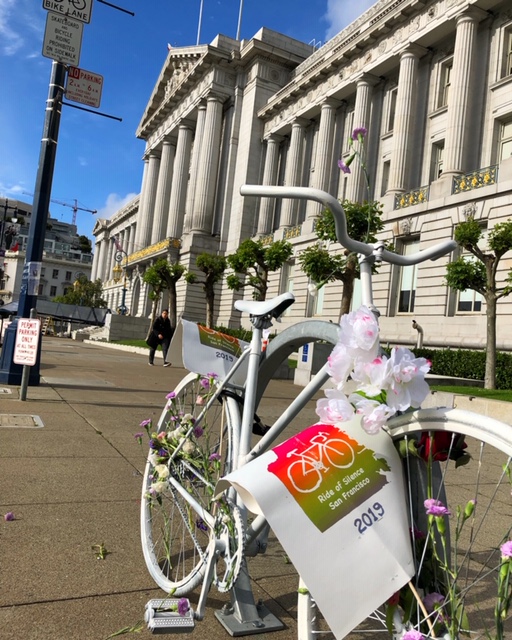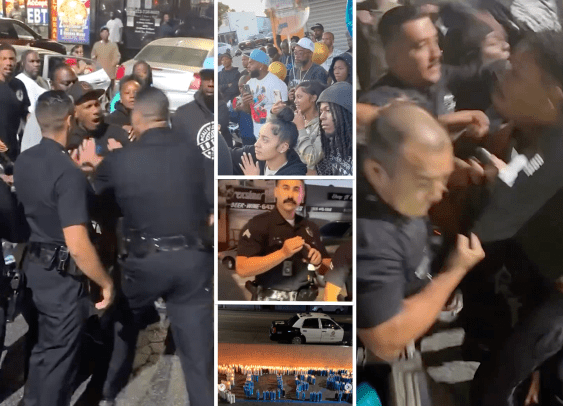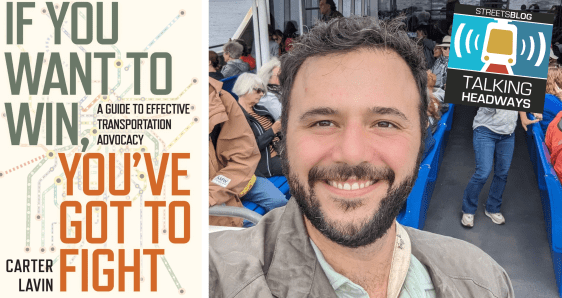Lately, with ridership recovering, Metro is having trouble providing enough bus service. Riders report overcrowded buses, late buses, bus no-shows, untrustworthy schedules, and other issues. Metro is scrambling, but the agency is experiencing a bus operator shortage that has made providing currently scheduled service impossible.
While there is some quantitative information about the latest Metro bus issues, many of the stories are anecdotal. Streetsblog inquired to several non-profit transit advocacy groups - including the Alliance for Community Transit, Investing in Place, Strategic Actions for a Just Economy, and Women Organizing Resources Knowledge and Services. This post features testimonies collected by these groups.
Aziz wrote that "[recently] some lines such as the 2 bus westbound have been so full, especially in the morning, that buses have been passing up bus stops - sometimes stops where 30 people were waiting (Sunset/Western)." "One day, three full buses passed before a fourth bus - which was bunching behind the third bus - stopped for me. I waited nearly 40 minutes to catch the 2 as a result. Some school students chose to walk to school instead of waiting for the bus after the bus passed them up."
Isabel reported experiencing long wait times on Line 117 on Century Boulevard and Imperial Highway. The bus passes every 40 minutes. Isabel uses Google Maps to plan her trips and check wait times, but for line 117, wait times jump from 15 minutes to 35 minutes. "This is the new norm for a lot of the buses. They say they're coming at a certain time but don't come."
Last September, Metro cited the pandemic as justification for cutting transit service by roughly 20 percent. After a protracted Metro board push to restore transit operations to pre-COVID levels, Metro has been ratcheting service back up with a board deadline to finish full restoration last month. Since at least May, Chief Operations Officer James Gallagher has been hinting that Metro would fail to fully restore service by September.
In an email this week, Metro spokesperson Rick Jager tried to put an optimistic spin on this, saying, "We have restored service to pre-pandemic levels," but due to a bus operator shortage "we find ourselves cancelling approximately ten percent of that allotted service on an average day." Jager noted that, "before the pandemic, we were canceling about 1-2 percent of assignments on an average day."
So, in terms of what riders are experiencing, Metro is only back up to around 90 percent of pre-COVID service, and is operating in an unpredictable and unreliable way. Metro's published schedules show pre-COVID levels, but Metro isn't adhering to its schedules.
Mireya related that she has experienced delays and long waits on Line 48 for the last two weeks. Mireya uses the Transit app to check bus wait times, and on several occasions, bus wait times would change dramatically from 20 minutes to 90 minutes. Mireya stated that people are constantly complaining about long wait times. When I ask people at the bus stop, they usually say they've been waiting for 30 or 40 minutes and usually when the bus comes late it's also packed. I don't know why Metro is allowing this."
Concurrent with ramping service back up, Metro has been implementing NextGen Bus Study changes. Though this reorganization is designed to make the system serve more riders more efficiently, changes were implemented poorly. Though Metro reported some modest gains - including reworked lines gaining back riders faster than other lines - NextGen has ended up adding an extra layer of confusion, as riders experience cut service alongside unfamiliar new routing.
Ofelia stated that Metro did not notify riders enough regarding June NextGen changes, "I kept seeing people, including myself, confused for a while about changes in bus service, especially line 18 [on 6th Street]. I depend on that line a lot traveling from Westlake near Wilshire around MacArthur Park going to East Los Angeles. The Soto and Whittier stop changed. It was moved and I did not see the 720 stop anymore. At San Pedro and 6th, by Skid Row, we have to transfer from the 720 to the 18." Ofelia stated that "Last Friday, I was on the 18 line eastbound and the bus was really overcrowded because apparently the bus before broke down and people had to wait and get on the next bus. It was really overcrowded and it was late, 9:30 p.m."
Martha mentioned that "other riders were saying that they are experiencing missed bus runs, delays, long waits, etc." and lamented NextGen's cancellation of the 704 Rapid bus on Santa Monica Boulevard. She related that "it took me 4 hours to return home [Lincoln Heights] from Bundy and Franklin in Santa Monica. I left around 2 p.m. and got home after 6 p.m. ... I was feeling suffocated, stressed and anxious. The bus was overcrowded and people were standing and I felt I was going crazy. I got off at Vermont and Santa Monica and took a train to make a connection with the 45 line to get home."
At last week's board meeting, CEO Stephanie Wiggins explained
To align with the restoration of seven million service hours this month, we have been on a campaign to hire 800 new bus operators. With 510 hired to date, we have fallen short of our target. So falling short means that bus service may experience delays. This challenge is not unique to L.A. Metro. There is a nationwide shortage of bus operators... We continue to see improvements with the hiring incentives we have launched this summer... Many thanks to bus operators and our riders as we work to restore reliable service.
Jager clarified, "We don’t have enough operators to run scheduled bus service (7 million revenue service hours) because of the significant number of operators out on short- and long-term leave due to COVID-19."
"We are aggressively trying to hire additional bus operators," he stated, "but we are not able to hire fast enough to cover attrition and operators out due to COVID."
When SBLA questioned what happens with operations monies approved but currently unspent, Jager, remarked that "there is little to no savings" because Metro is paying higher costs for current operations. Per Jager, Metro is paying staff who are on leave, and paying overtime rate to "call backs" who cover unstaffed runs. "Until we are fully staffed, we are relying on our frontline employees to fill in as many open assignments as they can."
Some advocates have questioned whether Metro is paying operators enough. Metro operators currently start at $17.71 per hour.
Readers - how has your experience been recently on Metro buses? Are they late? Crowded? Are things getting better or worse?
